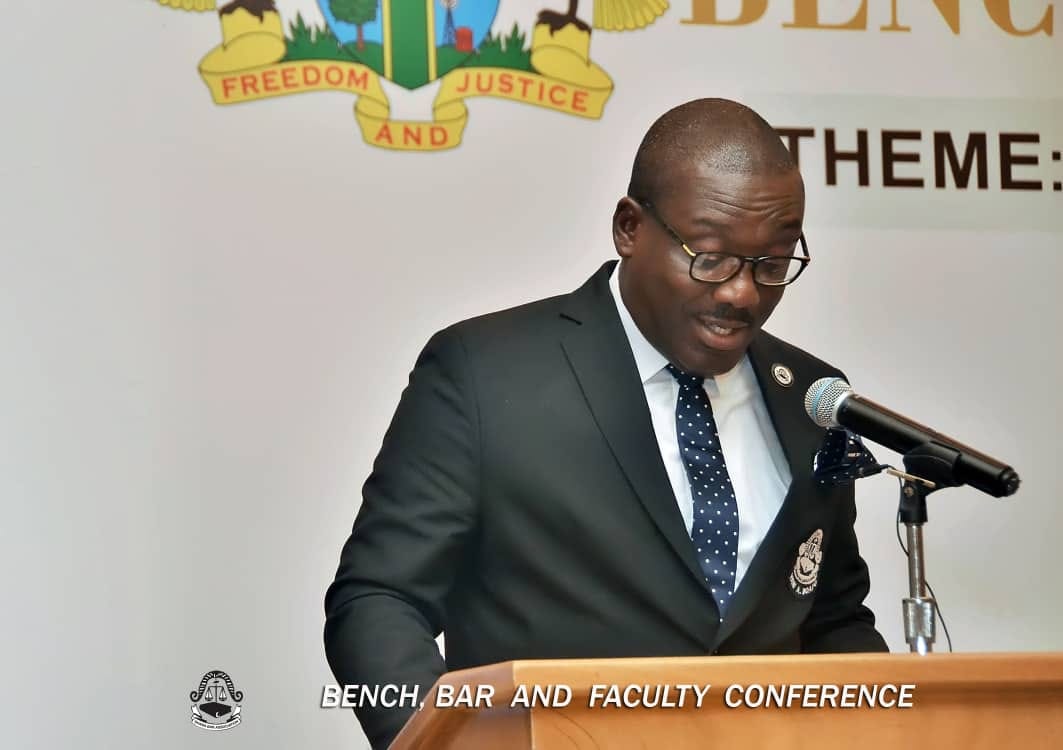Blame other statutory bodies not GLC for challenges of access to legal education – GBA President
“We must take a critical look at the role of the Ghana Tertiary Education Commission. "

President of the Ghana Bar Association, Yaw Acheampong Boafo has sternly defended the General Legal Council relative to the challenges and perceived obstacles in the way of access to legal education in the country.
According to him, the GLC is not responsible for the situation we find ourselves in thus the GBA largely supports the steps taken by the Council to regulate legal education in the country so far.
Speaking at the opening ceremony of the 2022 Annual Bar Conference held at the G.M.Afeti Hall of the Ho Technical University, Mr. Boafo said that various discussions in the public space appear to be an unfair and unfounded attack on the General Legal Council specifically the issue of entrance exams and admission into the Ghana School of Law.
While espousing the GBA’s belief in the increase in access to legal Education, he added that much has been done to improve the same in recent times especially the existence of five campuses as against the only one campus which existed previously.
Mr. Boafo thus stated emphatically that there are now more people enrolled in legal education and pursuing professional courses than at any time in our history.
He however mentioned that the above should not be construed to mean there must be a wholesome, unfettered, and unregulated admission into the Ghana School of Law and legal education generally and that calls for increased accessibility must not ride roughly over the need to ensure quality.
Moreover, the GBA President placed the cause of the current admission challenges into law School at the doorstep of other statutory bodies including the Ghana Tertiary Education Commission(GTEC) thus calling for a critical look at the role of the same.
On this, he said that in accrediting law Faculties by the GTEC, several infractions including qualification of lecturers, etc are ignored thus allowing Faculties who are in breach of the rules to continue to produce law graduates.
“We must take a critical look at the role of the Ghana Tertiary Education Commission. In the application of statutory rules relative to accrediting Law Faculties, infractions such as student-staff ratio, library facilities, and qualifications of lecturers, have been ignored. The institutions that are in breach of these rules are still being allowed to produce law graduates. The GTEC is the primary regulator at the LLB level and should carry out its mandate more strictly and effectively. “


